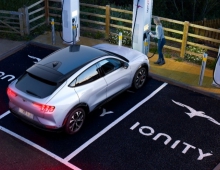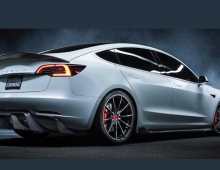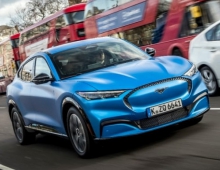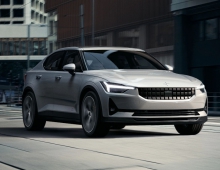
VW to Release More Than 36 Electric Models by 2025
Volkswagen Group has already released a total of around a dozen models which use electric drive technology and expects this figure to triple by 2025, offeirng electric cars for a broad market at affordable prices.
The technological backbone is a newly developed vehicle platform: the modular electric drive matrix or MEB for short. With the MEB, which Volkswagen has created for its ID. family. Volkswagen’s modular transverse matrix (MQB) is now being brought into the age of electric vehicles. The MEB will not only be the technical basis for all Volkswagen ID. family models but also for many electric cars of the Group’s brands, namely Audi, SEAT, ŠKODA and Volkswagen Commercial Vehicles.
Chief Executive Herbert Diess told German trade publication Automobilwoche that electric vehicle platform and battery procurement plans are being readied to handle production of 50 million vehicles. The electric vehicle platform has been "booked" for 50 million cars, Diess said, adding that battery procurement had also been readied to handle this amount.
"We have bought batteries for 50 million vehicles," Automobilwoche on Monday quoted Diess as saying.
Volkswagen is also open to joining a German consortium exploring production of electric car battery cells and will discuss the matter at a supervisory board meeting on Friday, Reuters reported on Monday.
The company has already awarded multibillion-euro battery cell supply contracts to LG Chem and China’s Contemporary Amperex Technology Ltd., but Chief Executive Herbert Diess has said Germany should wean itself off a dependence on Asian suppliers.
The German government is coordinating efforts to form a multi-company consortium designed to do just that.
New electric models
With the e-Golf1 and the e-up2, VW already has two purely electric models available in its range with two major plus points. However, the ID. family is at the heart of VW's future e-strategy. The ID. family will initially comprise four models: From 2020 on, the ID., SUV-Coupé ID. CROZZ as well as the seven-seater ID.BUZZ and the autonomously driving ID. VIZZION will be gradually introduced into the market.
Volkswagen is setting ambitious targets for its ID. family. The manufacturer hopes to sell 100,000 ID. and ID. CROZZ vehicles in the launch year alone. It will aim to sell 150,000 electric cars in total that year. That number is expected to increase to around one million electric vehicles by 2025.Together with the modular electric drive matrix (MEB), ranges of 330 to over 550 km will be possible depending on battery size and the relevant model (according to WLTP).
The Audi range already features a plug-in hybrid, the Q73. Two more are expected to be added shortly in the Q3 and A8 model series. The first purely electric vehicle, an SUV simply called the e-tron, is already being constructed at the CO2-neutral plant in Brussels. The second model, the e-tron Sportback, will be released as early as 2019.
Audi plans to sell 12 purely electric models in all major global markets and make around a third of its turnover from electric vehicles by 2025. The range is to extend from the compact class to the luxury class. Audi also plans to further expand its range of plug-in hybrid cars in the future.
Audi’s concept car, the e-tron GT concept will also celebarte its premiere at the Los Angeles Auto Show in a few weeks’ time. The technology behind this sports car was developed in cooperation with Porsche. Another joint project between the divisions at Audi and Porsche is the Premium Platform Electric (PPE). This will form the basis for several Audi model families featuring a purely electric drive intended to cover high-volume market segments.
Porsche offers plug-in hybrids in two different model series (Panamera and Cayenne4). This has paved the way for the introduction of the Taycan, Porsche’s first ever purely electric car, set to be launched in 2019. The Taycan uses the 800-volt technology, just like the three-time Le Mans winner, the Porsche 919 Hybrid. It ensures that the lithium-ion battery can recharge energy for a range of 100 kilometres (according to NEDC) in four minutes. The integrated Porsche E-Performance includes the charging infrastructure with solutions for use at home and on the road. The Taycan can be quickly charged with up to 22 kW over night at home with the Porsche Mobile Charger Connect. Inductive charging will also be an option.

Spanish subsidiary SEAT plans to launch its first purely electric car in 2020. It will be constructed using the MEB platform and is expected to boast long-range capability and fast charging times. There are plans for two drives with different power levels. The model’s name has not yet been confirmed. From a technical perspective, it will be similar to the ID. from the ID. family. SEAT will unveil the plug-in hybrid version of its Leon model next year.





















